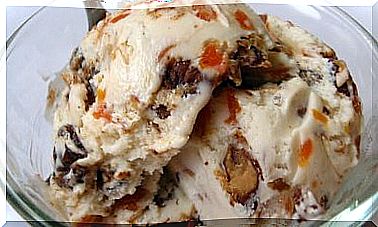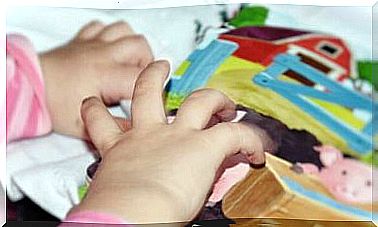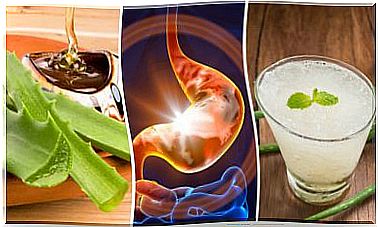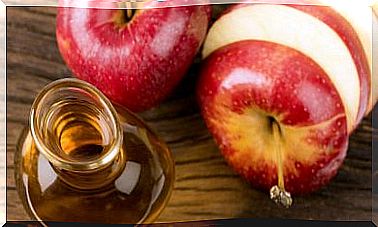How Do I Know If My Child Is Lactose Intolerant?
The lactose intolerant child is one whose body does not produce the enzyme lactase. This enzyme allows us to correctly process and assimilate the lactose contained in the food we eat. Lactose, also known as “milk sugar”, is present in milk produced by female mammals.
Lactose helps the correct absorption of calcium and promotes bone mineralization, as evidenced by this study published in Primary Care Pediatrics . Dairy-derived foods contain lactose. These include milk, yogurt, ice cream, butter, and cheeses.
What is lactose intolerance?
Lactose intolerance is a condition that occurs after ingesting this type of sugar. The body, by not producing lactase, does not absorb lactose efficiently. Therefore, the sugar reaches the colon and is fermented by the bacteria that reside there.
This causes gas, abdominal pain, vomiting, constipation and, in other cases, diarrhea, as this publication of the Postgraduate Journal of the VI Chair of Medicine points out .
Even when this disorder does not cause damage to the gastrointestinal tract, the lactose intolerant child may present the aforementioned discomforts and feel very bad. It is important to mention that the symptoms of lactose intolerance and allergies are similar.

For this reason, it can be difficult to determine what condition the child is having. Although the symptoms may vary depending on the age of the little one.
How do I know if my child is lactose intolerant?
The recurrent presence of the aforementioned symptoms may indicate that this condition is suffered, although there are other clinical conditions with symptoms similar to lactose intolerance. Based on this, it is important to speak with the pediatrician to perform the following tests to confirm the diagnosis.
Lactose tolerance test
- This test is based on measuring the glucose present in the blood after having ingested lactose.
- If glucose levels are not altered or elevated, it is clear that lactose is not being absorbed adequately.
Respiratory test
-
- To perform this test, the patient must have eaten foods high in lactose.
- The doctor measures the increase in hydrogen that is usually excreted through the lungs in small amounts and at regular intervals.
- If exhaled amounts exceed normal levels, the test will be determined as positive.

Stool tests
- Stool acidity is identified when children are very young and the application of the above tests is difficult.
- Undigested lactose ferments and produces lactic acid, one of the acids that can be detected in your child’s feces.
How to help your child if he is lactose intolerant?
If your child has been diagnosed as lactose intolerant, avoid feeding him foods that contain lactose . In this sense, you can plan your diet taking into account the following recommendations:
- Yogurt is easy to digest as it contains healthy bacteria that make the enzyme lactase.
- Foods such as green leafy vegetables, lactose-free or cereal milk (oatmeal, almond, rice), and calcium-fortified juices are a good choice.
- Calcium- rich foods that do not contain lactose can be a great option for your children. Among them are spinach, salmon, oranges and fortified breads.
- The pediatrician can indicate an appropriate supplement for your child if he finds that he is not getting enough calcium.
How to treat lactose intolerance in children?
Since this condition is a lifelong condition, the only effective treatment is prevention. A balanced diet that replaces the deficiencies of calcium and other nutrients that milk provides, such as vitamin D, will be beneficial for the health of your child.

It is wise to determine how lactose intolerant your child is and take appropriate precautions. Many foods not derived from milk contain lactose in their composition, such as desserts, sauces, soups or candies.
Today there are medications to replace lactase in patients with this deficiency. These come in various forms (capsules, powders, or syrup).
Its intake before meals helps to have a better digestion of dairy products. And this is evidenced by this article published in Latin American Gastroenterology . However, before opting for this alternative, always consult with a healthcare professional.
Forecast
Often times, the symptoms of lactose intolerance disappear when dairy products are eliminated from the diet. However, in the case of children, special attention must be paid to the nutritional part.
It is essential to find substitutes or supplements that provide the nutrients in milk. Without a proper diet, the little ones can have growth problems. Therefore, it is important to seek advice from an expert.
Now we know a little more about this food intolerance. If you suspect that your child may suffer from it, do not hesitate to go to the pediatrician as soon as possible.









